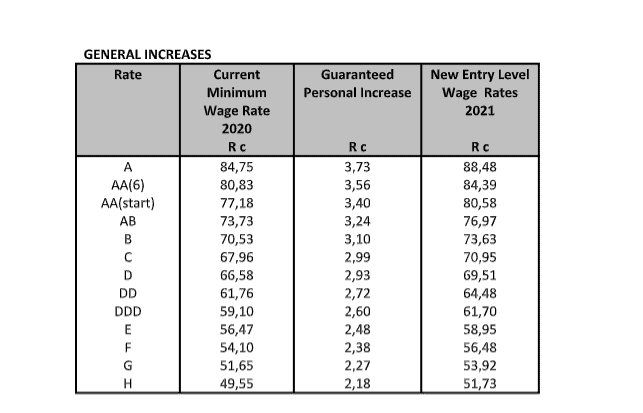Negotiations on the 28 th July held between SEIFSA representing the 18 affiliated Employer Organisations, NUMSA, Solidarity, UASA, MEWUSA and the SAEWA at the MEIBC, facilitated by a Senior CCMA Commissioner, ended with NUMSA registering a deadlock in response to SEIFSA’s offer aimed at industry survival, growth and recovery against all the Employer Organisations on the Bargining Council, namely NEASA, SAEFA and CEO excluding PCA (SA).
South Africa is still counting the costs of the looting and destruction that took place in KZN and parts of Gauteng, but already, initial estimates put the damage at 0.4%- 0.85 of GDP, equating to about R50bn
On the back of what unfolded over the last two weeks business confidence generally took a huge knock and it is expected that investors and business owners will be even more reluctant to reinvest in the sector. The protagonists of last week’s looting have truly set this industry back in dealing with the survival and recovery of the sector.
There will be job losses adding to those already lost from the pandemic and unemployment will once again soar in the months to come. While some businesses may have the balance sheets to rebuild their factories, small
businesses and manufacturers which are job centered will struggle to get back on their feet and some may never return. Outside of KZN and Gauteng factories across the industry have been significantly affected by supply chains, logistics, rail and port disruptions and the knock-on effects will be felt across the sector for quite some time and continues to negatively impact business confidence.
The SEIFSA conditional offer is based on the four key and inter related pillars namely: duration, wage increases, extension and a special phase-in dispensation aimed at encouraging support for centralised collective bargaining which is now, more than ever, needed in order to ensure the sustainability of the industry in an
environment of industrial peace, stability and certainty. The conditional offer presented to the unions is founded on a three year window with increases in year 1 being linked to a 4,4% increment linked to CPI and in year 2022
receiving a guaranteed increase of CPI plus 0,5% and in 2023 CPI plus 1%. The conditional offer in year 1 translates to the following impact on the industry’s general wage table:

As part of the proposed agreement a special phase-in dispensation has been formulated and will be made available to employers who are currently paying below the current minimum rates and are not members of an employer organisation that is a party to the main agreement, on the proviso that any such employer can prove membership of an employer organisation that is a party to this settlement agreement. Employers, as referred to above, who are paying at or above 60% of the current minimum rates on the 1 July 2021 will have ten (10) years to phase-in to 100% of the minimum rates and employers who are paying below 60% of the current minimum rates on 1 July 2021 will have 5 (five) years to phase-in to 60% of the minimum rates and thereafter ten (10) years to phase-in to 100% of the minimum rates.
With NUMSA registering its deadlock today and the other trade unions, for the time being, not following suit the SEIFSA Negotiating Team will revert back to the SEIFSA Council on Monday, 2 August to report back and take a view of the best possible way forward. All the trade unions in today’s session have indicated their willingness and availability to continue negotiations with a view to finding common ground. We will continue to keep all members fully informed as developments unfold.
1 Comment
Add comment Cancel reply
You must be logged in to post a comment.

Hi 4.4pecent is nothing cause am operator bt still my rate still nt good miling machine how much hv get